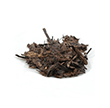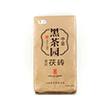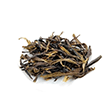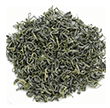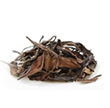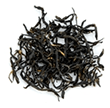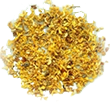Why Tea Tastes Bitter & How To Get Rid Of It (Part 2)
In last week’s blog post “Why Tea Tastes Bitter & How To Get Rid Of It (Part 1)“, I promised I’d provide more reasons tea is sometimes bitter and how you can get rid of it. So here you go!
- Time of day during harvesting: Leaves are harvested on sunny days to lower the water concentration of the picked leaves, since higher water concentrations increase catechin levels. Sunny weather completes the withering/wilting step of tea production, removing excess water from the leaves. The withering step controls the oxidation of the leaves during production, further breaking down the polyphenols and giving tea a milder taste.
- Insects: Tea trees are always being fed on by insects. To protect themselves, the plants produce a defensive and healing response which gives teas a more aromatic fragrance, but increases bitterness at the same time.
- Poor production quality: Withering and tossing are two early steps in the tea manufacturing process. If these steps are not carefully controlled, the water concentration in the tea leaves at the cellular level may be too high, which leads to finished teas containing a higher level of anthocyanin, which causes astringency.
- Oxidation and fermentation: Catechin levels can be decreased by increasing the degree of oxidation or fermentation used in the tea manufacturing process. Since green tea, white tea and yellow teas are subjected to the least amount of oxidization during processing, these can have the most bitter tastes if not brewed properly. Semi-oxidized teas (like oolong tea) are the next least bitter, then the fully oxidized teas (black tea) and then the post-fermented teas (Shou/Black Pu-erh tea) which have the least amount.
- Roasting and aging: Chinese roasted teas are renowned for their unique tastes. Roasting is done during the initial processing or every few years using aged leaves (Aged Old Bush Wu Yi Shui Xian Tea, Traditional Aged Oolong). Pu-erh teas are aged without any roasting (except the Shou or “Black” varieties which have a fermentation step in the manufacturing process. Long periods of high-temperature roasting and long periods of aging accelerate oxidization and the breakdown of polyphenols, which lowers the caffeine levels in the tea and in turn, reduces bitterness.
Here is a quick method to use what you have on hand to get rid of the bitter taste in any tea:
- Fill your teapot, small teacups and a small pitcher with hot water, wait a few seconds and empty.
- Put one tablespoon of tea leaves in the teapot for every two people being served. Use more for large leaf tea.
- Pour enough hot water (see Water Temperatures below) into the teapot to cover the leaves. Empty the teapot immediately.
- Pour enough hot water into the teapot to cover the leaves. Wait 8 – 10 seconds and pour the tea into a small pitcher and serve.
- For additional brews, repeat Step 4, deducting two seconds for the next brew and adding two seconds for each additional brew. Adjust the amount of water to just cover the leaves.
All the ingredients in the tea are now properly balanced. As the aromatic compounds dissolve in the water, you will notice subtle flavours of the tea begin to change with each brew. You will be amazed at the difference in the taste of your tea and with no bitterness!
Water Temperatures
| Green, White, Yellow Tea or any tea made from tips: | 75 – 80ºC / 167 – 176º F |
| Taiwan, High Mountain Oolong Tea, Black Tea, Pu-erh, Da Hong Pao (Cliff/Rock Tea), Tie Guan Yin (Iron Buddha, Chinese Oolong): |
90 – 97ºC / 194 – 206º F |
| Phoenix Oolong Tea: | 95ºC / 203º F – slow boil |
If you would like to see full instructions on how to make tea using the traditional Chinese method of tea-making used by the masters, see our complete article in our Library at The Chinese Tea Shop: Gong Fu Cha – The Complete Guide To Making Chinese Tea – By Daniel Lui
Don’t know which tea is right for you? Answer a few questions and the Online Tea Wizard will show you all the Chinese teas that suit your taste. Amazing!
 Top of Page
Top of Page

Ask The Tea Wizard
Don't know which tea is right for you? Answer a few questions and the Online Wizard will show you all the Chinese teas that suit your taste.


